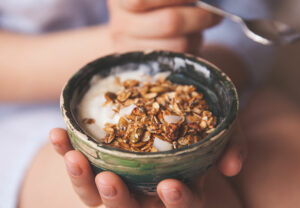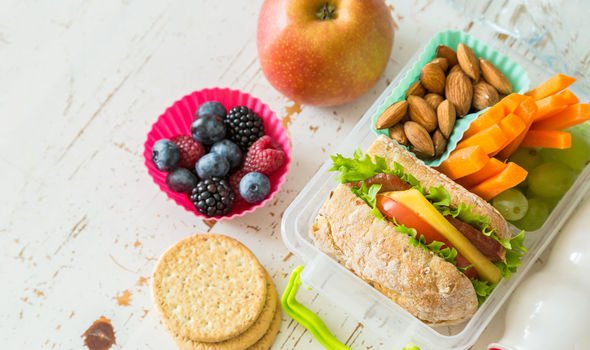When you are living with hypoglycemia, it can be challenging, as the delicate balance of blood sugar levels can greatly impact daily life. Whether you’re managing diabetes or experiencing occasional dips in blood glucose, incorporating natural and effective home remedies into your routine can provide valuable support. In this blog, we’ll explore various home remedies for hypoglycemia to help stabilize blood sugar levels and promote overall well-being. Discover empowering insights and practical tips to navigate hypoglycemia with confidence.
Contents
Can Hypoglycemia Be Treated Naturally?
 Hypoglycemia, characterized by low blood sugar levels, can be effectively managed and treated naturally through various lifestyle modifications and holistic approaches. One key aspect is maintaining a well-balanced and nutritious diet. Opting for complex carbohydrates with a low glycemic index helps provide a steady release of glucose into the bloodstream, preventing rapid spikes and crashes. Additionally, incorporating lean proteins and healthy fats can further support a more gradual release of glucose, aiding in the prevention of hypoglycemic episodes.
Hypoglycemia, characterized by low blood sugar levels, can be effectively managed and treated naturally through various lifestyle modifications and holistic approaches. One key aspect is maintaining a well-balanced and nutritious diet. Opting for complex carbohydrates with a low glycemic index helps provide a steady release of glucose into the bloodstream, preventing rapid spikes and crashes. Additionally, incorporating lean proteins and healthy fats can further support a more gradual release of glucose, aiding in the prevention of hypoglycemic episodes.
Regular physical activity is another natural avenue for managing hypoglycemia. However, individuals need to monitor their blood sugar levels closely, as intense or prolonged exercise may lead to hypoglycemia in some cases. As with any health condition, consulting with healthcare professionals is crucial to tailor a natural treatment plan that aligns with individual needs and ensures a comprehensive and safe approach to managing hypoglycemia.
What Are Helpful Home Remedies For Hypoglycemia?
Managing hypoglycemia at home involves adopting various lifestyle changes and incorporating natural remedies to help stabilize blood sugar levels. Here are some helpful home remedies for hypoglycemia:
Balanced Diet
Maintaining a well-balanced diet is fundamental in managing hypoglycemia. Emphasize complex carbohydrates, such as whole grains, fruits, and vegetables, as they provide a steady release of glucose into the bloodstream. Including lean proteins from sources like poultry, fish, and plant-based options, along with healthy fats like avocados and nuts, can contribute to a more stable blood sugar profile. Eating smaller, more frequent meals throughout the day helps prevent drastic fluctuations in glucose levels and provides a continuous source of energy.
Regular Monitoring
Consistent monitoring of blood sugar levels is crucial for individuals managing hypoglycemia. Regular checks, especially after meals and physical activity, can help identify patterns and triggers. This information is valuable in making informed adjustments to dietary choices, exercise routines, and overall lifestyle. If you notice persistent patterns of low blood sugar, consult with a healthcare professional to refine your management strategy.
Herbal Remedies
Certain herbs have shown the potential to support blood sugar regulation. For example, cinnamon has been studied for its ability to improve insulin sensitivity, while fenugreek and bitter melon may aid in controlling blood sugar levels. However, it’s important to approach herbal remedies with caution and consult with a healthcare professional before incorporating them into your routine, as they can interact with medications or have varying effects on different individuals.
Physical Activity
Regular exercise is a powerful tool for managing hypoglycemia. Both aerobic activities, like brisk walking or cycling, and strength training can improve insulin sensitivity, allowing cells to utilize glucose more effectively. However, individuals should be mindful of their blood sugar levels during and after exercise to prevent hypoglycemia. Adjustments to medication or carbohydrate intake may be necessary. And it’s advisable to consult with a healthcare provider to develop a safe and effective exercise plan.
Hydration
 Adequate hydration plays a role in blood sugar regulation. Dehydration can lead to a concentration of blood glucose, potentially causing spikes. Drinking water throughout the day helps maintain proper hydration levels and supports overall health. Minimize the consumption of sugary or caffeinated beverages, as they can contribute to dehydration and may impact blood sugar stability. Opt for water as your primary beverage and consider herbal teas for added variety without added sugars.
Adequate hydration plays a role in blood sugar regulation. Dehydration can lead to a concentration of blood glucose, potentially causing spikes. Drinking water throughout the day helps maintain proper hydration levels and supports overall health. Minimize the consumption of sugary or caffeinated beverages, as they can contribute to dehydration and may impact blood sugar stability. Opt for water as your primary beverage and consider herbal teas for added variety without added sugars.
Stress Management
Stress management is a critical aspect of natural hypoglycemia treatment. Chronic stress can trigger the release of hormones like cortisol, which can impact blood sugar levels. Incorporating stress-reduction techniques into your daily routine, such as deep breathing exercises, meditation, or yoga, can help mitigate the physiological effects of stress. Finding activities that bring relaxation and joy can contribute not only to better blood sugar control but also to overall well-being.
Frequent, Small Meals
Opting for smaller, more frequent meals rather than three large ones is an effective strategy for individuals managing hypoglycemia. This approach helps prevent sharp spikes or drops in blood sugar levels, providing a more consistent source of energy throughout the day. Consider incorporating nutrient-dense snacks between meals, such as a handful of nuts or a piece of fruit, to maintain stable glucose levels.
Protein Snacks
Including protein-rich snacks in your diet is beneficial for stabilizing blood sugar. Proteins take longer to digest than carbohydrates, contributing to a sustained release of glucose into the bloodstream. Nuts, seeds, yogurt, or lean protein sources like hard-boiled eggs make excellent snacks to keep on hand. These options not only provide a valuable energy boost but also contribute to feelings of satiety, helping control appetite and blood sugar levels.
Limit Refined Sugars
Reducing the intake of processed and refined sugars is a key component of managing hypoglycemia naturally. These sugars can cause rapid spikes in blood glucose, followed by crashes, exacerbating the condition. Read food labels carefully to identify hidden sugars in packaged products, and opt for whole, unprocessed foods whenever possible. Choosing natural sweeteners like honey or maple syrup in moderation can be preferable to highly processed alternatives.
Adequate Sleep
Quality sleep is integral to overall health and can significantly impact blood sugar levels. Lack of sleep or irregular sleep patterns can affect insulin sensitivity, potentially leading to imbalances in glucose regulation. Aim for seven to eight hours of uninterrupted sleep each night. Establishing a consistent sleep routine, creating a comfortable sleep environment, and minimizing stimulants before bedtime contribute to better sleep quality and support overall metabolic health. Prioritize good sleep hygiene as part of your holistic approach to managing hypoglycemia.
It’s important to note that these home remedies for hypoglycemia should be integrated into an individualized plan, and consultation with healthcare professionals is crucial for those managing hypoglycemia, especially if associated with conditions like diabetes. They can provide personalized advice, monitor your progress, and ensure that the chosen remedies are safe and effective for your specific health needs.
What Is The Best Food To Eat When Your Blood Sugar Is Low?
 When your blood sugar is low, it’s essential to consume foods that can quickly raise glucose levels to help alleviate symptoms of hypoglycemia. Ideally, you should choose items with a combination of fast-acting carbohydrates and some protein or healthy fats for sustained energy. Here are some examples of the best foods to eat when your blood sugar is low:
When your blood sugar is low, it’s essential to consume foods that can quickly raise glucose levels to help alleviate symptoms of hypoglycemia. Ideally, you should choose items with a combination of fast-acting carbohydrates and some protein or healthy fats for sustained energy. Here are some examples of the best foods to eat when your blood sugar is low:
- Fruit Juice or Regular Soda: Opt for a small glass of fruit juice or a regular soda. The natural sugars in the juice or the added sugars in the soda can rapidly increase blood sugar levels.
- Glucose Tablets or Gel: Glucose tablets or gel, available at pharmacies, are specifically designed to raise blood sugar quickly and are convenient for on-the-go situations.
- Dried Fruit: Dried fruits like raisins or apricots provide a concentrated source of carbohydrates. They are portable and can be easily carried for a quick energy boost.
- Honey or Maple Syrup: Consuming a tablespoon of honey or maple syrup can provide a rapid increase in blood sugar. These natural sweeteners also contain some beneficial nutrients.
- Hard Candy or Jelly Beans: A few pieces of hard candy or jelly beans can be a quick source of sugar. Keep in mind that they lack protein or healthy fats. So pair them with a protein-rich snack for sustained energy.
- Crackers with Peanut Butter: Whole-grain crackers with peanut butter offer a combination of carbohydrates, protein, and healthy fats, providing both a quick energy boost and sustained blood sugar levels.
- Yogurt with Fruit: Low-fat yogurt with added fruit or honey combines carbohydrates with protein. And, making it a balanced choice to raise blood sugar.
- Banana with Nut Butter: A banana paired with almond or peanut butter provides a mix of natural sugars, carbohydrates, and healthy fats, promoting a gradual increase in blood sugar.
- Cereal with Milk: Whole-grain cereal with milk is a good combination of carbohydrates and protein. Choose a cereal with minimal added sugars for a healthier option.
- Granola Bar: Opt for a granola bar that contains a mix of carbohydrates, fiber, and some protein. Look for options with lower added sugars.
It’s important to consume these foods in moderation and be mindful of portion sizes to avoid overcompensating and causing a subsequent spike in blood sugar. Individual preferences and dietary restrictions should also be considered when choosing the best option for treating low blood sugar.
Conclusion
In conclusion, managing hypoglycemia naturally involves adopting a holistic approach that incorporates simple yet impactful lifestyle changes. From maintaining a balanced diet with a focus on whole foods to incorporating stress-relief techniques and regular physical activity, these home remedies for hypoglycemia can contribute to stable blood sugar levels. Remember to monitor your blood sugar regularly, consult with healthcare professionals for personalized guidance, and build a routine that suits your individual needs.
By embracing these home remedies, you can empower yourself to navigate hypoglycemia with confidence and promote overall well-being. Always prioritize your health and make informed choices that align with your unique circumstances.
Do you want to get rid of diabetes? Join our online diabetes treatment program and reverse Diabetes naturally through lifestyle changes such as a Personalized Diet plan, Exercise, Yoga, dieticians, and health coaches.

